Editorial

Dear IPEC Europe members,
‘’Summertime, and the livin’ is easy’’ so the famous song tells us and while we may be about to enjoy a seasonal break, work carries on regardless! The so called ‘silly season’ isn’t quite so silly anymore! Certainly, our Secretariat is fully engaged preparing for a full programme of events in the autumn. You can see in this issue, we’ll be present officially at CPhI (Frankfurt) for the first time, as well as Making Pharmaceuticals (Milan) and IPEC Europe Excipients Conference (with APV in Vienna). There’s a lot of activity required to deliver our contributions to these occasions involving many of you, but I really believe it’s worth it and that our greater outreach efforts are taking us closer to our 2020 vison. Incidentally, 2020 is not far away so at the next Board meeting in September, we need to focus on where we want to take IPEC Europe in the next five years … 2025, here we come!
You can see that our GDP and QRA committees have been busy and I hope you like the process of sharing meeting highlights with you very soon after the meetings themselves. Hopefully, these bulletins keep you and your colleagues better informed of our initiatives and achievements. In this column, I always like to take some time to recognise the great work that we do and so, GDPC and QRAC, please stand up and take a bow! GDPC, thanks for your leadership in getting the IPEC Federation position paper on Supply Chain Security published. And QRAC, especially to our BASF colleagues, an outstanding effort, working through compendia to reverse changes to the ADE for ethylene glycol. This was an important issue for many of our members and it’s nice to know that what you did change things.
Of course, we also have a forum for pharmacopoeial matters including harmonisation, increasingly called compendial convergence these days. We’re trying to regain some momentum here by launching an initiative to develop a ’best practice’ for our industry on how to achieve compliance with global pharmacopoeias in an efficient and standardised way. So, I encourage you to read the notice (or forward it to a colleague) and if you think you can help to make a difference, sign up!
Regulation, regulations, regulations … their appearance doesn’t respect vacation time! We continue discuss about how we can best present our concerns with the draft ECHA draft guidance on restriction of microplastics before the deadline for the second round of comments in September. And in China, the China Pharmacopoeia Commission (CPC) is issuing many draft monographs to prepare for the ChP 2020 edition. … we’re passing on what we receive but it’s hard to keep pace with the sheer number. Hopefully, this helps you to submit comments through your companies, but as an association, we’ll give an IPEC Europe position only on those texts which represent a significant change in the control strategy.
The IPEC Federation met on 16 July in China and had an opportunity to interact with several CPC officials to discuss some of the issues with recent publications. More on this next time! And on that note, let me leave you with my best wishes for summer and ‘see you in September’ (another song)!
Frithjof Holtz
IPEC Europe Chair
Save the date! 2020 Forum and AGM
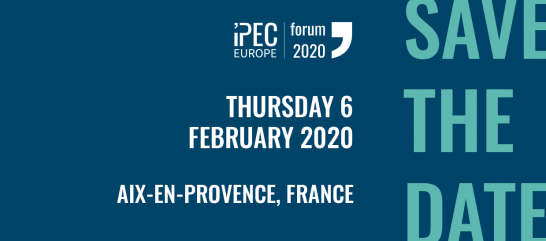
We are excited to announce that our 2020 Annual Excipients Forum will take place in Aix-en-Provence (France) on Thursday 6 February 2020. The Event Committee has been working to develop a thought-provoking programme covering - amongst other topics - excipients for use in parenterals, the latest developments for Chinese regulation relating to excipients registration, Brexit and so much more. We will wrap up the day with our traditional Forum dinner where we will shine some light on the IPEC Federation and its ten years’ anniversary. So, mark your calendar and keep a close eye on our website and LinkedIn page for more details!
Invariably if we may say so, the Forum will be held in-between the IPEC Europe Committees and Sister associations (EXCiPACT and IPEC Federation) meetings on Wednesday 5 February and our Annual General Meeting on Friday 7 February morning.
We look forward to telling you more... stay tuned!
A strategy for Multicompendial Compliance: we want you!
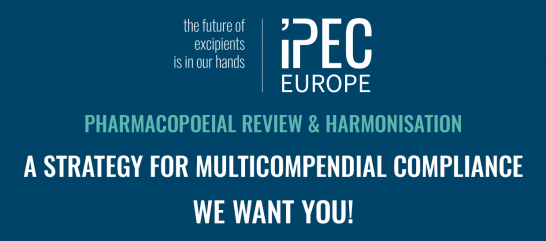
We need you to join the new IPEC Europe Compendial Convergence Task Force that will coordinate the development of a best practice to help our members achieve compliance with monographs of multiple compendia.
Action is necessary as excipients makers and users continue to be challenged by non-value-added testing to ensure regulatory compliance. Where pharmacopoeial harmonisation has not delivered the expected results and more divergent monographs continue to be published. The industry must step in and find an acceptable solution to align internal procedures with a common multicompendial compliance approach acceptable to regulators.
First, the Task Force will establish a statement of intent that will be the basis for the industry best practice. Task Force members will have the opportunity to exchange with sister associations, key stakeholders and regulators.
If you are interested in taking part in this important endeavour, read the full notice here and express your interest to the Secretariat no later than 31 August.
IPEC Europe and IPEC-Americas submit comments on the draft ECHA Annex XV Restriction Report on “intentionally added microplastics”
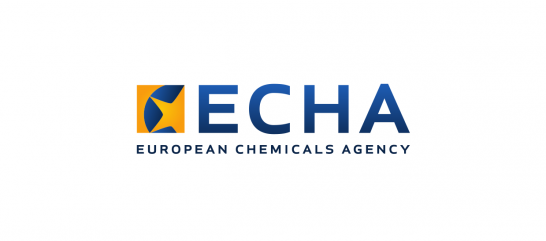
IPEC Europe and IPEC-Americas jointly submitted their comments to the European Chemicals Agency (ECHA) on the Annex XV Restriction Report on intentionally added microplastics in May 2019. Although this restriction does not apply directly to the healthcare field, its consequences and the withdrawal of certain products could have critical repercussions on the pharmaceutical and excipients industries.
On 30 January, ECHA published its restriction proposal for intentionally added microplastics in all consumer and professional use products at the request of the European Commission.
The ECHA restriction proposal defines microplastics as materials consisting of solid polymer-containing particles, to which additives or other substances may have been added, which are less than 5mm in diameter.
Comments were drafted by a Task Force created within the Quality and Regulatory Affairs Committee (QRAC) and endorsed by the Board. A second window for comments is open until 20 September.
In a nutshell, IPEC stressed that the application of such restriction versus the potential risk for patients is disproportionate. IPEC recommends narrowing the scope of the restriction to identified high risk products. Also, the definition of microplastic material should be clarified to avoid misinterpretation. The submission is available here.
The IPEC Europe QRA Committee discussed on 9 July the opportunity to submit further comments to ECHA and agreed to make a disposition directly to the European Commission (EC) before the September deadline.
IPEC Europe Board: updates
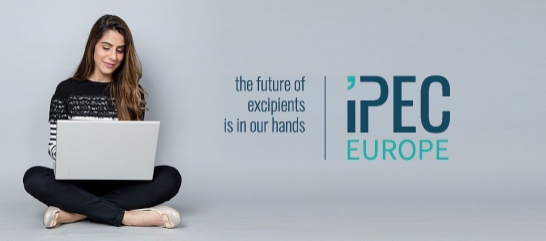
The second face-to-face meeting of the year of the IPEC Europe Board took place on 25 June at IPEC Europe’s office in Brussels.
Highlights of the meeting included the review of 2019 objectives and an update of deliverables, the role of IPEC Europe in EXCiPACT and IPEC Federation, the Annual Forum and the relocation of the Secretariat offices.
Visit the Member’s Lab to access the Highlights of the June meeting.
Updates from IPEC Europe Committees
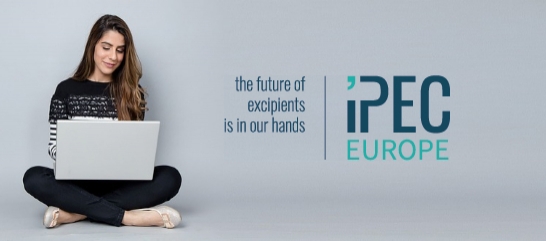
Good Distribution Practices Committee
The Good Distribution Practices Committee had a busy time in spring with three teleconferences between April and June, making significant progress on a Transport position paper and finalising the Supply Chain/Integrity position paper.
The GDP Committee Chair, Dr Frank Milek, presented on the Transportation Conditions for Excipients” at the “7th International Conference on Pharmaceutical Excipients”, organised in Shanghai by IPEC China on 17 July.
Meanwhile, Franziska Buck of Biesterfield Spezialchemie resigned from the GDP committee. The committee thanked Franziska for her valuable contribution throughout all the years and welcomed her new colleague Jan-Kristian Boy.
Quality and Regulatory Affairs Committee (QRAC)
QRAC had another productive face-to-face meeting on 9 July.
Key points of discussion include the publication of the Primary Packaging Materials statement, the successful correction to an ICH-related change in the PDE for ethylene glycol, and the opportunity of a submission of comments to ECHA regarding proposed microplastics legislation.
The case for an Excipient Master File System in Europe
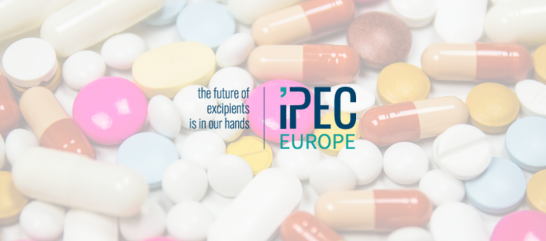
IPEC Europe has published its position paper and Stimuli Article on the need for an Excipient Master File System for Novel Excipients in Europe. The paper aims to alert of this deficiency that can inhibit innovation for novel excipients in Europe and to encourage European regulators to act.
In a press release, IPEC Europe Chair Frithjof Holtz notes that “the absence of a functional and dedicated regulatory pathway for excipients […] is a commercial and administrative disadvantage facing novel excipient developers in Europe compared with other regions”.
This proposal builds upon experiences in other major regulatory environments – Japan, USA, Canada and China all rely on systems that allow an excipient manufacturer to submit the necessary details on their product to regulatory authorities without disclosing proprietary manufacturing information to third parties.
IPEC Europe has sought to collaborate with EFCG (European Fine Chemical Group – Cefic sector group) and APIC (Active Pharmaceutical Ingredient Committee) on this important project. A Task Force will be formed by the end of the summer to design a questionnaire on why the absence of such master file system can create a barrier to European innovation. If you are interested to take part in this initiative, please do not hesitate to contact the IPEC Europe Secretariat.
Read the Stimuli Article and the Position paper on the IPEC Europe website.
IPEC Federation: new position paper and new website
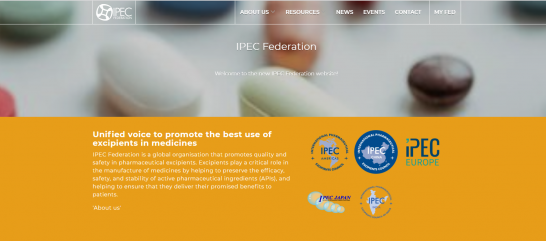
Position paper: Supply Chain Security of Excipients
The IPEC Federation issued a position paper on the Supply Chain Security of Pharmaceutical Grade Excipients in May.
Supply chain security requires the protection and control of pharmaceutical excipients across the entire supply chain, downstream from the excipient manufacturer to the finished dosage form producer.
Product quality, traceability and integrity must be assured to minimize the risk to patients which may result from the use of falsified and substandard excipient products.
Today’s increasingly complex global supply chains create additional risk and therefore additional considerations related to excipient security.
The paper summarises existing applicable regulations and various tools supporting good practices for supply chain security and ultimately drug safety. These include the IPEC Federation’s Good Distribution Practices Guide for Pharmaceutical Excipients, IPEC-Americas Risk Assessment Guide and the EXCiPACT and NSF/IPEC/ANSI 363 certifiable GMP and GDP standards for excipient suppliers.
The position paper is available on the IPEC Europe website.
New website: a redesigned hub for all IPEC Federation activities
The new IPEC Federation website is online!
Presented for the first time at the latest IPEC Federation Board meeting in Shanghai, People’s Republic of China on 16 July, the redesigned website provides better access to all information stemming from the Federation and the five IPECs around the world.
Streamlined menus and a simpler navigation make it easy for visitors to quickly find the information requested. Access to IPEC Federation guidance is guaranteed: all guidelines, templates and position papers are presented in a single webpage.
The redesigned website is available at the address www.ipec-federation.org.
EXCiPACT

by Tony Scott, Senior Adviser, EXCiPACT
EXCiPACT activities in Q2 2019 have been dominated by a series of direct marketing events in the UK, USA and Italy all of which were well attended, and a wide range of questions were successfully dealt with from widely different audiences. It is evident that EXCiPACT awareness is increasing throughout the supplier market in Europe and N. America. Importantly, excipient users are beginning to include EXCiPACT audit reports in their supplier qualification process to save auditor time and costs.
These events were a UK seminar and an exhibition at UK Making Pharmaceuticals from 29 April to 1 May, IPEC-Americas “Excipient World” exhibition/conference from 6-9 May, the New Jersey Pharma Quality and Control Association/FDA conference on 14 May, and on 5-6 June, the annual Italian national API exhibition. EXCiPACT speakers at these events included the President, Vice-President and former Vice-President, Quality Manager, Senior Adviser, and speakers from Certification Bodies, Certified Companies and a user representative (David Klug) from IPEC-Americas. A seminar is being planned in Spain for later this year.
We are delighted that two of our Certification Bodies have renewed their triennial contracts. The number of certifications is now approaching 100 and there are now almost 30 registered auditors. Plans are developing to increase EXCiPACT awareness and auditor numbers in the USA, one of our key markets. A new promotional brochure is in preparation for launch later this year.
Calendar
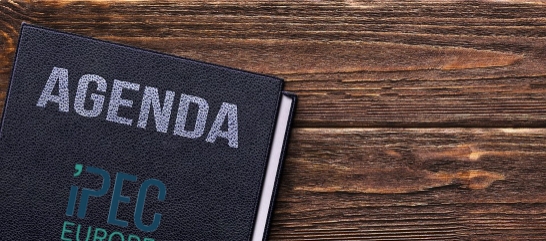
| Group |
Q3/4 2019 |
| IPEC Europe Board |
19 September, Brussels, Belgium
28 November, Stuttgart, Germany |
| Good Distribution Practices Committee |
17-18 September, Brussels, Belgium
26-27 November, Stuttgart, Germany |
| Quality & Regulatory Affairs Committee |
29 October, Brussels, Belgium |
| IPEC Federation / PDG meeting |
2 October, Tokyo, Japan |
External events: Making Pharmaceuticals UK and Italy, CPhI
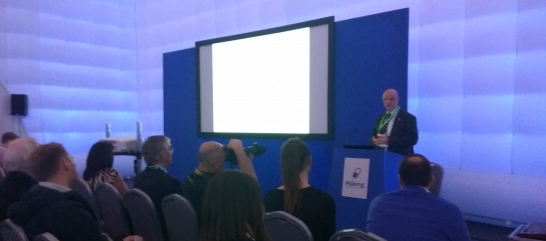
External events are part of IPEC Europe’s outreach strategy to “spread the word” on excipients and our activities.
For the third year in a row, IPEC Europe participated and contributed to the 2019 Making Pharmaceuticals UK in Coventry from 30 April to 1 May. Board member Liz Meehan, AstraZeneca and Iain Moore, Croda presented to an audience of pharmaceutical experts on the proposal of an excipient master file system in Europe, challenges and issues of atypical actives, and continuous manufacturing for oral solid dosage forms.
Visitors also came to the IPEC Europe/EXCiPACT stand where Adrian Bone, our Senior Advisor and Stefano Luppino, our Junior Communication Manager answered questions and provided more information on IPEC Europe and its activities.
IPEC Europe will also be present at several external events in the second part of the year across Europe, so mark your calendar and let us know if you will attend!
After several successful editions in the United Kingdom, Making Pharmaceuticals will be held for the first time in Italy. On 16 and 17 September, Milan will host the first edition of this fair in Italy and IPEC Europe will fly the flag with two sessions presented by Alberto Genovesi, Colorcon and Roberto Mastrantonio, Eli Lilly on the EFSA Safety review of Titanium Dioxide (E171) and the IPEC Federation Quality Agreement guide respectively. Come and visit us at Stand 208 where Stefano Luppino, IPEC Europe Junior Communication Manager will be glad to answer your questions on IPEC Europe in Italian, English or French!
Finally, IPEC Europe’s Chair Frithjof Holtz will present on “The case for a Master File System for Novel Excipients in Europe” at CPhI Worldwide in Frankfurt, Germany on 7 November. One of the leading pharmaceutical events in Europe, this three-day event is an excellent setting to present our association to a greater audience of professionals in the pharmaceutical sector. Managing Director Carole Capitaine and Stefano Luppino will be there and look forward to meeting current and prospective members to discuss the benefits of being part of IPEC Europe.
Picture: Iain Moore, Croda
Practical sessions on the spotlight at the 2019 IPEC Europe Excipient Conference
Don't forget to register for the 2019 IPEC Europe Excipient Conference, organised in cooperation with APV. The conference will take place at the Austria Trend Hotel Savoyen Vienna, a few steps away from the Belvedere Palace, from 24 to 25 September 2019.
The official programme for the event will focus on regulatory guidelines relating to pharmaceutical excipients and technology and is available on our website.
Three practical sessions will demonstrate how IPEC Guidelines can be used to develop internal company procedures on excipient matters.
Learn how compliance for excipients can be achieved using the IPEC Guides for Co-processed Excipients, Good Distribution Practices and Technically Unavoidable Particle Profile (TUPP). The “practical sessions” will run in parallel twice and are a great opportunity for all participants to share their views and experiences in an interactive way.
The programme features several “hot topics”, including two compendial topics presented by EDQM and USP and an overview on the evolving landscape of the pharmaceutical industry. Other sessions focus on the application of the excipients and the new science in key areas such as paediatrics, solid dispersions as well as taste masking.
Finally, networking and exchange of information are a key feature of the event. Table-top exhibitions aligned to the conference will encourage communication between suppliers and users.
It will be our pleasure to welcome you in Vienna.
Dr Amina Faham, IPEC Europe Board Member
Dr Frank Milek, IPEC Europe Vice-Chair
Dr Mahmud Yunis, IPEC Europe Board Member
EMA and FDA announce the entry into force of a Mutual Recognition Agreement
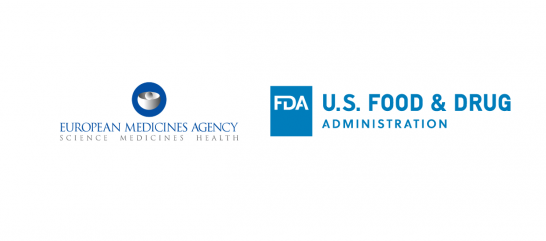
The European Union and the United States have finalised the implementation of a Mutual Recognition agreement (MRA) for inspection of manufacturing sites for most human medicines.
FDA and the European Union have collaborated since 2014 to discuss and evaluate the way they each inspect drug manufacturers and assess the risk and benefits of mutual recognition of inspections.
The completion of capability assessment of Slovakia and Germany inspectorates by FDA closes a two-year assessment process to ensure that the parties have the capability, capacity and procedures in place to carry out GMP inspections at an equivalent level.
As a consequence, “qualified persons in the EU Member States do not need to batch test human medicines covered by the MRA, provided that they have verified that these controls have been carried out in the United States for products manufactured in and imported from the United States”, EMA writes.
In a note published on the Agency’s website, Guido Rasi, Executive Director of EMA, said how the agreement with the US Food and Drug Administration “will support making best use of our inspection capacity, so that patients can rely on the quality, safety and efficacy of all medicines, no matter where they have been manufactured”.
This mutual recognition agreement joins several other MRAs signed by the European Union with third-country authorities such as Australia, Israel, and Switzerland.
EU and US regulators will now rely on each other’s inspections for human medicines in their own territories, thus avoiding overlapping in activities and enabling resources for inspections in other countries.
The FDA announced on its website that while it will continue to perform some inspections in EU countries, it will perform fewer routine surveillance inspections and will collaborate with local inspectorates.
Mutual recognition efforts could lead to further collaboration between FDA and the EU on inspections in other territories.
FDA enhances the Inactive Ingredient Database
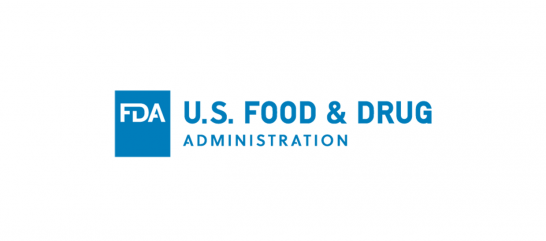
The Food and Drug Administration announced significant changes for the Inactive Ingredient Database, or IID, in the upcoming two years.
The enhancements include replacing potency limits with a maximum daily exposure limit and adopting standard terminology for routes of administration. Furthermore, the Agency will update the Database on an ongoing basis and post quarterly notice of the updates made. Such notices will include each change made and, for each change, the information replaced.
The Inactive Ingredient Database provides information on inactive ingredients present in FDA-approved drug products. The proposed changes are intended to help industry make informed choices when selecting excipients for the development of new drug products.
The draft Guidance for Industry document is available here; comments can be submitted here by 9 October.
MHRA opens a consultation on Analytical Quality by Design Principles
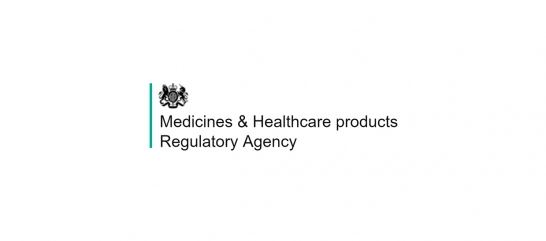
The Medicines and Healthcare products Regulatory Agency (MHRA) opened a public consultation in June to understand the views of stakeholders on the application of analytical Quality by Design (AQbD) principles to its pharmacopoeial standards.
The agency defines Quality by Design (QbD) as a “systematic approach to development that begins with predefined objectives and emphasizes product and process understanding and process control, based on sound science and quality risk management.”
The project is supported by a Technical review that includes a case study on a practical application of the AQbD principles on the development of a pharmacopoeial assay procedure.
The MHRA consultation follows the exploration of AQbD principles in the ICH concept paper Q14: Analytical Procedure Development and Revision of Q2(R1) Analytical Validation.
The consultation is open until 31 August 2019.
Recommended readings

European Pharmacopoeia (Ph. Eur.) 10th Edition
The 10th edition of the European Pharmacopoeia has been released in July 2019. The new and revised Texts of the will become official on 1 January 2020. ECA Academy reports a list of changes.
Source
Warning letter on Data Integrity provides “learning lessons”
This warning letter from FDA provides “learning lessons” on Data Integrity issues. IPEC Federation is developing a statement on the topic.
Source
FDA Proposes Program To Establish Voluntary Pharma Quality Standards
The FDA’s CDER recently released draft guidance aimed at the development and recognition of voluntary consensus standards for pharmaceutical quality. Recognition of voluntary consensus standards “will help promote innovation in pharmaceutical development and manufacturing and streamline the compilation and assessment of marketing applications”, CDER writes.
Source
Locking fraudulent materials out of the supply chain
Regulators implemented several measures to set standards for product identification and traceability for finished drug products. Risks are also present at the other side of the supply chain, with substandard raw materials. How to minimise this?
Source
Avoiding Excipient Variability
Variability in the properties and performance of excipients may have a significant impact on the safety and/or efficacy of the final drug product. Managing—minimizing—excipient variability is an essential part of drug product development and manufacture.
Source
The IPEC Story: Promoting Ingredients for Success
An article by David Schoneker summing up the history of the creation of IPEC-Americas, the recent developments and the importance of excipients (and novel excipients) for patients’ safety.
Source
Is it Time to Update cGMPs in the US?
The latest formal revision of pharmaceutical cGMPs in the US was approved in 1977. Should cGMPs be revisited and updated, given the fundamental change that have taken place within the industry?
Source
Events

Here is a round-up of forthcoming events of interest to suppliers and users of excipients. Please let the IPEC Europe Secretariat know if we've missed one.
11th EUPFI Conference
Malmoe, Sweden - 10-11 September 2019
More information here
Making Pharmaceuticals Italia Exhibition and Conference
Milan, Italy - 18-19 September 2019
More information here
IPEC Europe Excipient Conference 2019
Vienna, Austria - 24-25 September 2019
More information here
22nd APIC-CEFIC European Conference on Active Pharmaceutical Ingredients
Prague, Czechia - 23-25 October 2019
More information here
CPhI Worldwide
Frankfurt, Germany - 5-7 November 2019
More information here
EFCG at CPhI Worldwide
Frankfurt, Germany - 6 November 2019
More information here
Qualified Person Forum 2019
Munich, Germany - 28-29 November 2019
More information here
2020 IPEC Europe Annual Excipients Forum
Aix-en-Provence, France - 6 February 2020
More information soon!
|